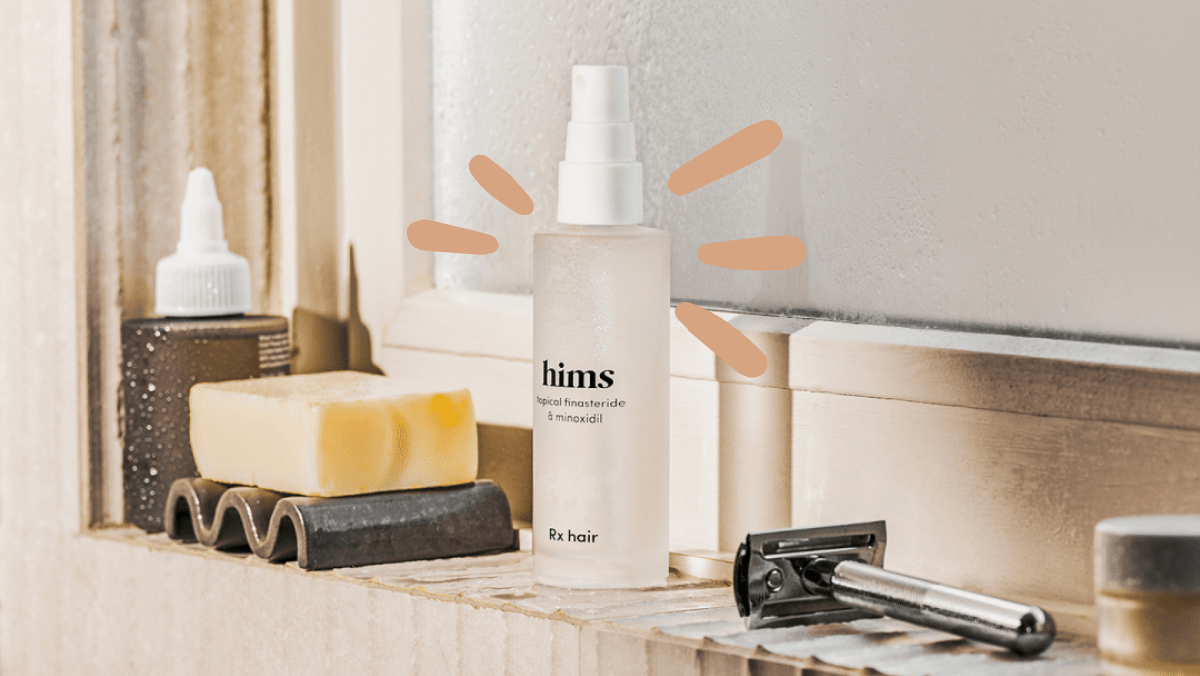
How long does finasteride take to work? And more hair regrowth questions answered
What to expect when you’re expecting an improvement in your hairline
Here at Style Girlfriend, we’re all about helping you look good. Because when you look good, you feel good, too. No matter how well you dress, though, it can be hard to feel your most confident if you’re experiencing hair loss.

A staggering 53% of men will experience some form of hair loss by the age of 50, which means it’s more than likely that you (yes, you!) may be dealing with hair loss or hair thinning right now.
And despite plenty of stylish bald men to take your confidence cues from—Stanley Tucci, Jason Statham, and Dwayne Johnson come to mind—you may not be interested in accepting your follicle fate.
Thankfully, there’s hope! If you’re one of the literal millions of men struggling with hair loss, it might be time to get familiar with finasteride (and topical finasteride), a prescription medication considered the most effective hair loss treatment available today.
The generic version of Propecia, finasteride is a once-a-day pill used to treat male pattern baldness (there’s also a topical finasteride, which is a once-a-day spray with fewer side effects).
It’s FDA-approved and clinically proven to stop hair loss, keep the hair you still have and, in some cases, grow hair back. (read enough? start your telehealth visit with hims here to get your prescription).
Why hair loss happens
Let’s back up. Why does hair loss happen in the first place?
Blame DHT, a hormone responsible for activating puberty in men.
DHT doesn’t do much after you’ve grown. In fact, it just kind of lingers around in your body, where it can become a problem as an adult.
Ironically, while DHT is what helps you grow facial and body hair in puberty, it’s also responsible later in life for binding to receptors in the scalp and making hair follicles no longer capable of producing healthy hairs.
How finasteride works
Without getting overly technical about it, finasteride works to block DHT (we like to imagine finasteride doing a DDT to DHT in your body), shielding your hair follicles from its annoying adult-onset effects.
The result? Taking finasteride helps to reduce the amount of DHT in your body, which, in turn, allows for a reduction in hair loss—and (in most men) actively begins the hair regrowth process.
We say most men because roughly 92% of men who took finasteride see a noticeable reduction in baldness and a return of their hair, but there is a chance you could be one of the 8% who doesn’t see any increase.
RELATED: 4 Health Habits to Adopt Now
At the very least, however, you won’t lose any additional hair.
How long does finasteride take to work?
All this sounds good, right?
But you want to know: how long does it actively take for this whole process to work? Well, the good news is, finasteride begins to make a change the second your body absorbs it.
So long as you’re consistent about taking the once-a-day pill, your hair will return to you.
That said, it will take a little longer to actually see the fruits of your labor.
“Labor” being a stretch, considering taking finasteride adds…mmm, about five seconds to your daily routine.
The timeline for noticing a substantial reduction in hair loss is around an average of six to nine months.
While some men may not see any hair regrowth, taking finasteride ensures you won’t lose what you currently have.
Finasteride slows hair loss down, helps to balance out any further loss, and then (potentially) begins to grow it back. Patience is the name of the game here.
Bottom line?
Take control of hair loss now.
Finasteride is a one-stop-shop in helping to hold the (hair) line between you and further hair loss, and you can get a prescription online today.
The pill and spray are effective, working immediately to make an impact. When it comes to hair loss, taking finasteride can mean the difference between going full-Walter White and keeping your manly mane.
***
Thanks as always for supporting brands like hims that make Style Girlfriend possible!



